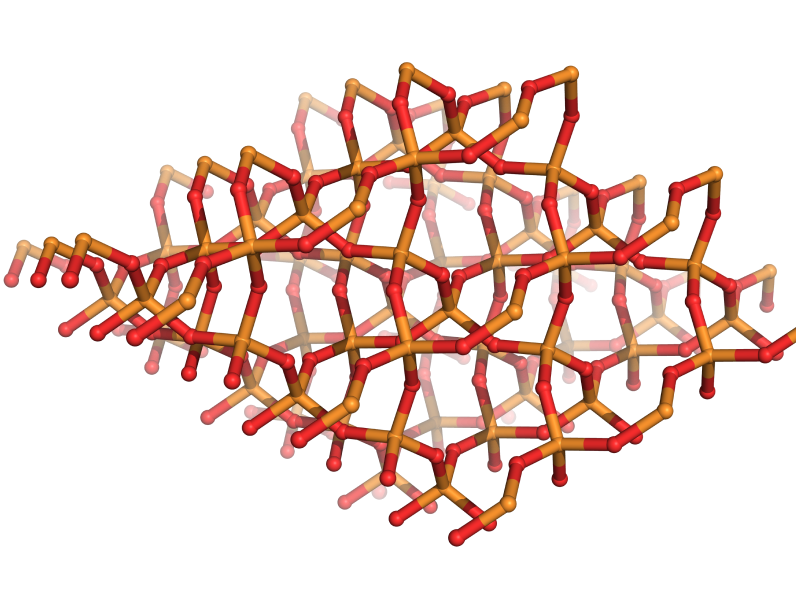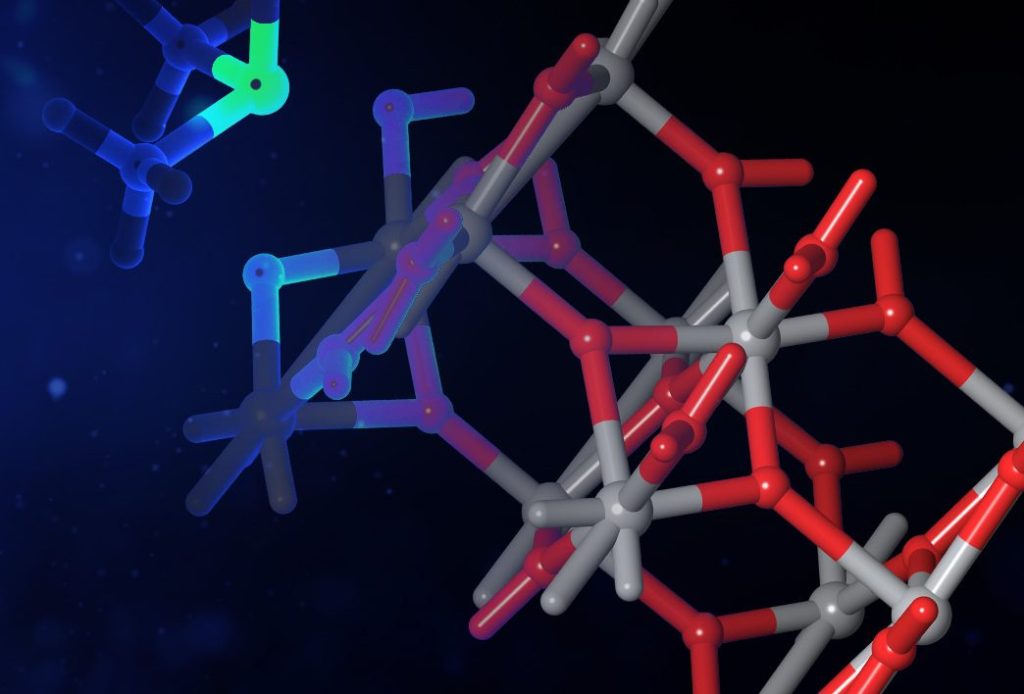- Explore the mechanical, magnetic, and dielectric properties of organic and inorganic materials, their surfaces, and interfaces
- Establish relationships between structure, composition, dimensionality, and key materials parameters
- Elucidate diffusion, segregation, and intercalation reaction mechanisms
- Reveal the structure of grain boundaries and dislocations
- Evaluate factors affecting thermodynamic stability
- Uncover effects of doping and point defects in semiconductors
- Understand phase diagrams and mechanisms for phase transformations


Discover and optimize inorganic materials at the molecular level
Structures, morphologies, and compositions are important factors for the properties of inorganic materials, and understanding structure-property relationships at the atomic level is critical for optimal materials design.
Leverage Schrödinger’s Materials Science platform to perform efficient multiscale simulations (quantum mechanics, ab-initio, and molecular dynamics) and build machine learning models to accurately predict these key properties, enabling the design of high-performance inorganic materials.

Intuitive computational workflows designed by experts in inorganic materials
Easy-to-use system builders for all inorganic material types
Powerful workflows for molecular simulation, machine learning, and data analysis
Dedicated customer support and extensive training resources
Your toolkit for inorganic materials innovation
Gain a deeper understanding of inorganic materials properties
Enhance your materials analysis capabilities
- Enable comprehensive analysis using band structures and projected densities of states, phonon analysis, and free energies and equations of states
- Simulate Infrared, Raman, and solid-state NMR spectra

Molecular modeling for materials science applications: Surface chemistry
Online certification course: Level-up your skill set in materials surface modeling
Learn how to apply industry-leading computational software to predict key properties of reaction in solids and on surfaces for bulk crystals and inorganic solids with automated workflows and machine learning models.
- Self-paced learning content
- Hands-on access to Schrödinger software
- Guided and independent case studies
Documentation & Tutorials
Get answers to common questions and learn best practices for using Schrödinger’s software.
Key Products
Learn more about the key computational technologies available to progress your research projects.
Virtual Cluster
Secure, scalable environment for running simulations on the cloud
Quantum ESPRESSO Interface
Integrated graphical user interface for nanoscale quantum mechanical simulations
Jaguar
Quantum mechanics solution for rapid and accurate prediction of molecular structures and properties
DeepAutoQSAR
Automated, scalable solution for the training and application of predictive machine learning models
Training Tutorials
Building and manipulating crystal structures
View tutorialElectronic structure calculations of bulk crystals using Quantum ESPRESSO
View tutorialModeling Surfaces
View tutorialPeriodic descriptors for inorganic solids
View tutorialPublications
Browse the list of peer-reviewed publications using Schrödinger technology in related application areas.
Benchmarking machine learning descriptors for crystals
Sonpal A, et al. Machine Learning in Materials Informatics: Methods and Applications, Chapter 6, 111-126, 2022
Structural investigation, quantum chemical calculation, energy framework analysis and MIC studies of silver and cobalt complexes of 4-amino-N-(4, 6-dimethyl-2 pyrimidinyl) benzenesulfonamide in presence of secondary ligand
Socha BN, et al. Inorganic Chemistry Communications. Volume 154, August 2023, 110936
Software and services to meet your organizational needs
Software Platform
Deploy digital materials discovery workflows with a comprehensive and user-friendly platform grounded in physics-based molecular modeling, machine learning, and team collaboration.
Research Services
Leverage Schrödinger’s expert computational scientists to assist at key stages in your materials discovery and development process.
Support & Training
Access expert support, educational materials, and training resources designed for both novice and experienced users.